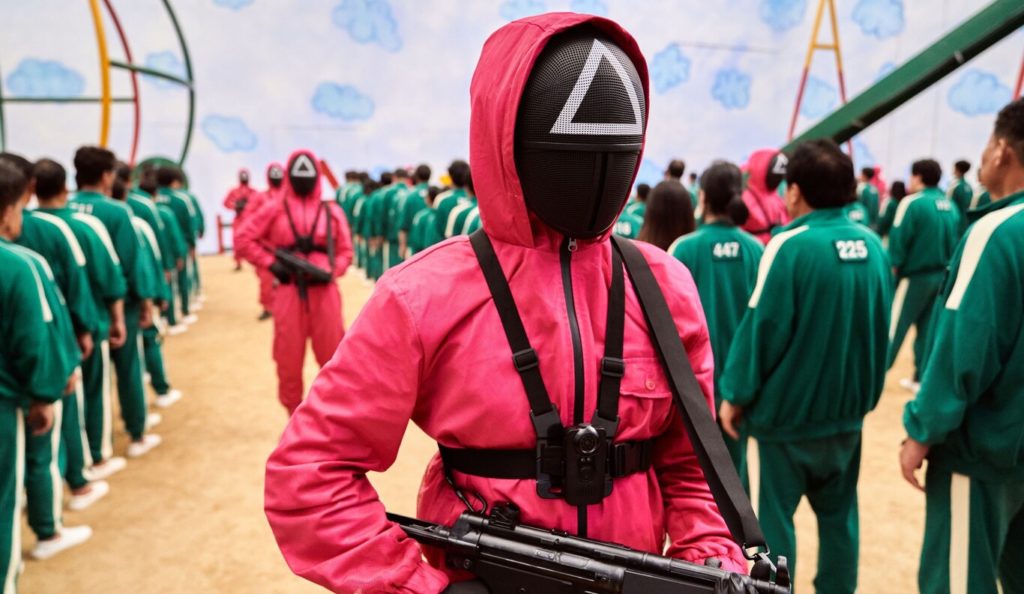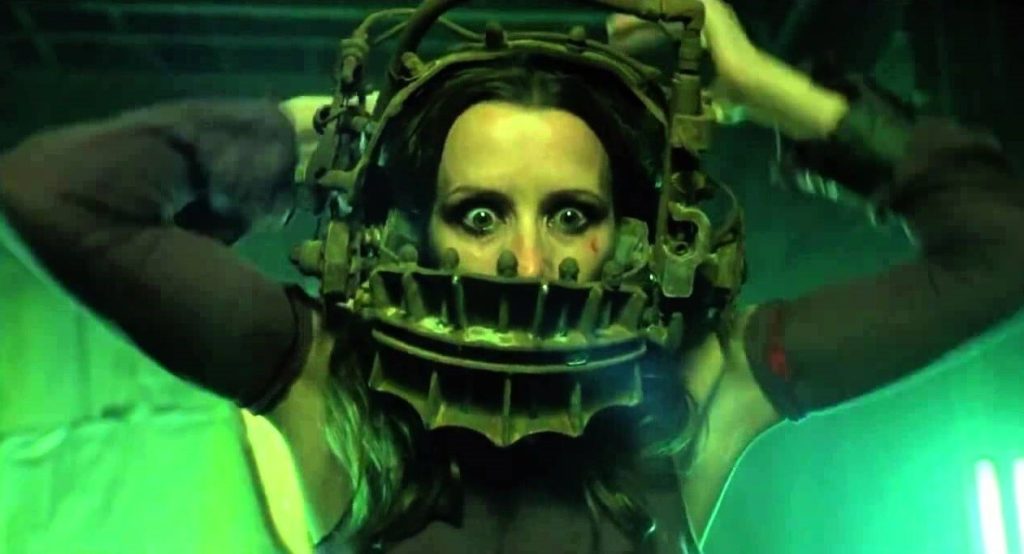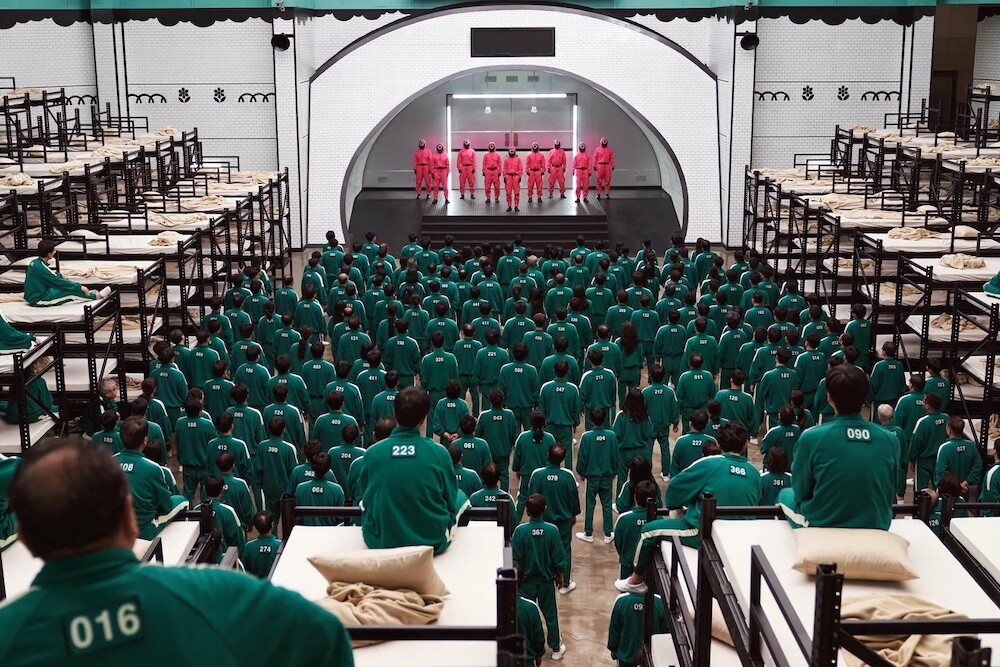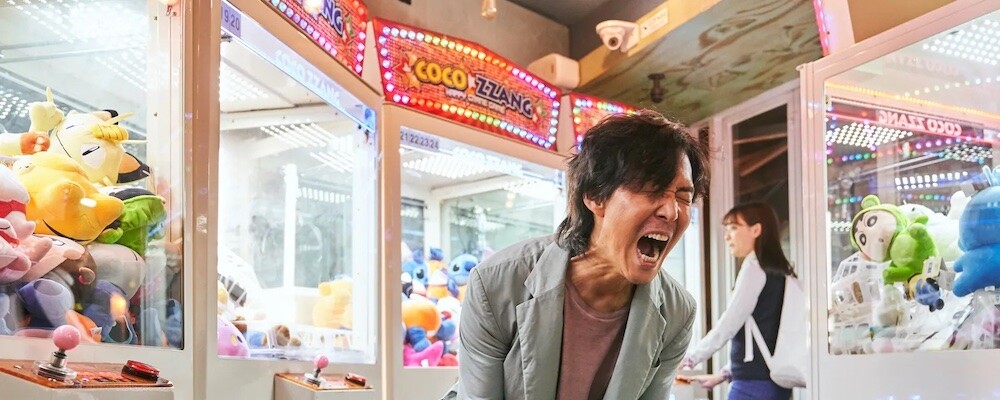This article includes very mild spoilers from the series.
It has become such a massive and international success that Netflix itself does not give credit. Ted Sarandos recently acknowledged that “We did not see it coming in terms of its global popularity”, and the truth is that it is on its way to becoming one of the most-watched series on the platform without starting with anything in its favor: Asian origin without actors or team known in the West, it does not belong to a famous franchise and the promotional machinery of Netflix has not supported it especially (for example, the press did not have access to screeners anticipating its premiere).

However, the spread of his fame, exclusively through the effect of word of mouth, has very clear motives. The magnetism that emerges in the plot and the visual curdles in an addictive series, which overflows with anthological moments, iconic images, and perfect material for memes in each plane. These are some of the keys that have made the series a worldwide phenomenon.
An argument that is almost a meme
The plot of ‘The Squid Game’ is as elementary as it is enigmatic: a group of people with serious economic problems agree to participate in a game that will make one of them a millionaire. They will only have to survive six tests inspired by children’s games of Korean origin but that we all know, such as the iconic ‘English Hideaway’ with which the massacre is inaugurated. For viewers, as simple to understand as it is to communicate… and propagate through the internet.
Two key references: ‘Saw’…

Who is not going to like a saga of systematic and changed tortures? The ‘Saw’ saga has gone from being a thriller franchise where the weight was in the suffering and torture suffered by the victims of a dangerous psychopath to a succession of bulky devices of may static death, increasingly sophisticated and symbolic. Some of that is inherited by the children’s games transformed into execution devices of ‘The Squid Game’: its almost moral mood, the unnecessarily bulky operation, and the knowledge on the part of those responsible for the series that they are the real attraction of the product.
The parallels do not end there. They also remind the Jigsaw saga of the anonymity of the torturers, who speak with machines that deform their voice and wear masks, the feeling that the victims are in the tests to purge sins they committed in their “normal” life, and the idea of a lethal game, which not by deadly ceases to have springs typical of an innocuous children’s entertainment.
… and ‘The Hunger Games

It is the other clear reference of the series, tied with ‘Battle Royale’. Not only because of the presentation of a lethal competition in which the contestants play something more than a diploma but because of the slightly dystopian tone of the story. The series does not take place in the future, but the ornate aesthetics, the totalitarian gestures, and the grid structure of the tests are reminiscent of the best dystopias. There are no sci-fi components to ‘The Squid Game’, but every time the contestants are walked around the facility to go to a new test, any viewer’s dystopia detector goes crazy.
The care of your visual section

One of the first impacts offered by the series is the plane of the corridors that communicate the participants with the first test: seemingly infinite stairs where everyone seems to move in different directions. It is inevitable to remember mc Escher’s trompe l’oeil in works such as his ‘Relativity‘. The whole series shines at the same level: from the aesthetics of the tests (between the childish and the perverse) to some montages that are put in relation to all the characters (for example, with the contestants following the same ritual of getting into a car alone when they decide to return to the contest), through abundant symmetrical general planes or from unusual perspectives. Visually, the series continually surprises.
Its plot structure is out of what we already know by heart

If ‘The Squid Game’ were a Western series, you know what structure it would have: the characters enter the contest and we know what has led them there through very heavy flashbacks that do not interest us too much. But here the twist comes soon: the characters, of whom we still know nothing, vote to leave the contest… and they succeed. It is through this brief stay abroad that we not only know the history of each one in a different way from the usual narrative of the series, maintaining interest, but we also understand the reasons why they do not try to escape from such a dangerous environment.
The message is tremendously nonconformist

Another clear reference that we can put on the table when talking about ‘The Squid Game’ is the latest international success of Korean cinema: ‘Parasite’, a rabidly anti-capitalist (and at times anti-system) film that denounces with humor and grotesque caricature the painful situation faced by almost the entire human race, voluntarily taking on debt, stressful jobs and naïve abstract happiness as a goal that never quite ends. ‘The Squid Game’ tells exactly that (sharing, in addition, the composer of the soundtrack), but without sermons or fuss: the viewer understands perfectly why the system has caught the characters, why they are desperate to get out … and why the game that allows them to get out fast is also a trap. In addition, as a curiosity, ‘Parasites’ and ‘The Squid Game’ share the same soundtrack composer, Jung Jae-il.
The extraordinary performances of the cast, often bordering on parody but without losing sight of the essential humanity of the characters, do much to communicate that message. Lee Jung-Jae and
Park Hae-so lead a group of losers who react with helplessness, rage, apathy, or even anesthetized good mood to an untenable situation, to the point that they agree to get into the wolf’s mouth (several times!) out of sheer desperation.
It is not cut in the slightest

And that is its great value, after all: when it fools with terror or fantasy, the series does so by transforming the aesthetics of the images. When subplots involving gore and violent savagery are at play, the images are unbearably shocking. Deaths are literally counted in the hundreds (and we see them all) and even the satirical comedy he flirts with is anything but shy.
‘The Squid Game’ is brave and insane and has conquered viewers around the world, simply because it does not take prisoners in its story and commits to it until the end. As Korean commercial cinema has been doing for decades, on the other hand, although that is a bandage that we will have to remove on another occasion.
